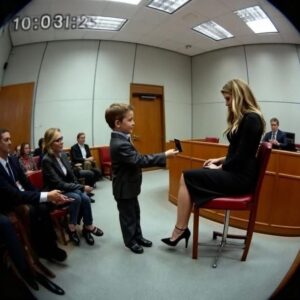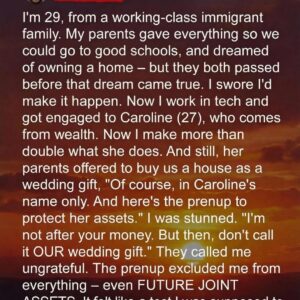It started as an ordinary dinner. Over eggplant parmesan at our favorite restaurant, my daughter Ruth leaned back in her chair and said quietly, “Dad, I’ve decided I’m not going to have children.” The words hung in the air. I tried to hide my surprise, but I had always pictured her as a mother.
That night, after much reflection, I made a change to my will. I left a larger share to my nephew, who had three young children of his own. I thought it made sense—passing resources to the next generation where I believed they would matter most. When I told Ruth, she didn’t get angry. Instead, she stayed calm and steady, saying, “You’re acting on your values. I’m acting on mine.” Her response unsettled me more than if she had shouted.
Weeks later, though, she admitted softly, “Everyone wants to feel like their life counts.” That struck me. For the first time, I realized I hadn’t been seeing Ruth for who she was, only for who I thought she should be. I went back to the lawyer, revised the will, and this time included a personal letter.
In it, I told Ruth I was proud of her—of her strength, her conviction, and the life she was building on her own terms. Years passed. Ruth married a wonderful woman, and together they adopted a little girl, Ada. The first time I held my granddaughter, I felt a wave of clarity. Legacy isn’t defined by whether or not someone gives birth. Legacy is the love we pass on, the people we nurture, and the impact we leave in hearts, not just in bloodlines. That will didn’t just change Ruth’s future—it changed me too.





